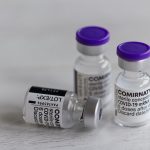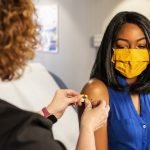Pfizer, Moderna, and Johnson & Johnson COVID vaccines: Which elicits the strongest immune responses?
The U.S. Food & Drug Administration granted emergency use authorization to the mRNA-based vaccines known as BNT162b2 (BioNTech, Pfizer) and mRNA-1273 (Moderna) in December...
Boost muscle strength to lower your diabetes risk
In a recent study from Iowa State University, researchers found building muscle strength may offer a way to lower your risk of type 2...
Liver problems can drive heart disease and obesity
In a recent study published in Nature Communications, researchers found how susceptible we are to obesity and heart disease could be determined by our...
Lowering blood pressure to this number can strongly reduce heart disease risk
In a recent study published in the New England Journal of Medicine, researchers found that intensive blood pressure treatment targeting systolic blood pressure <120...
These foods may damage your eyes, study finds
In a new study from University at Buffalo, researchers found people who eat a diet high in red and processed meat, fried food, and...
He used CPR in an emergency – then he became the emergency
Joe Farrell went to retrieve an errant golf ball when he came upon another player on the ground not breathing. The man's golfing partner...
Yogurt and high-fiber diet may cut lung cancer risk
In a new study from Vanderbilt University, researchers found a diet high in fiber and yogurt is linked to a reduced risk of lung...
One coronavirus vaccine may protect against other coronaviruses
In a new study from Northwestern Medicine, researchers found that coronavirus vaccines and prior coronavirus infections can provide broad immunity against other, similar coronaviruses.
The...
High-fat diet and antibiotics may strongly harm your gut health
In a new study from the University of California, Davis, researchers found combining a Western-style high-fat diet with antibiotic use significantly increases the risk...
Lack of zinc may increase risk of high blood pressure
In a recent study published in the American Journal of Physiology — Renal Physiology, researchers found lower-than-normal zinc levels may contribute to high blood...










